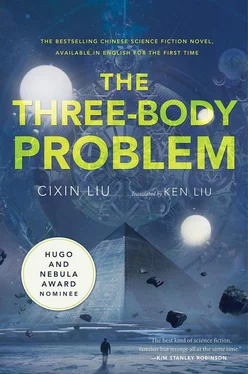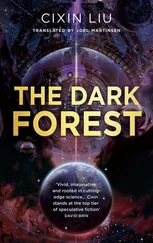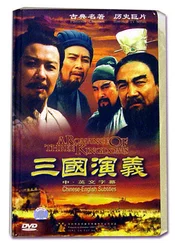In this tiny mountain hamlet deep in the Greater Khingan Mountains, something finally thawed in Ye Wenjie’s heart. In the frozen tundra of her soul, a tiny, clear lake of meltwater appeared.
* * *
Ye eventually returned to Red Coast Base with Yang Dong. Another two years passed, divided between anxiety and peace. Ye then received a notice: Both she and her father had been politically rehabilitated. Soon after, a letter arrived for her from Tsinghua, stating that she could return to teach right away. Accompanying the letter was a sum of money: the back pay owed to her father after his rehabilitation. Finally, at base meetings, her supervisors could call her comrade .
Ye faced all these changes with equanimity, showing no sign of excitement or elation. She had no interest in the outside world, only wanting to stay at the quiet, out-of-the-way Red Coast Base. But for the sake of Yang Dong’s education, she finally left the base that she had once thought would be her home for the rest of her life, and returned to her alma mater.
Leaving the mountains, Ye felt spring was everywhere. The cold winter of the Cultural Revolution really was over, and everything was springing back to life. Even though the calamity had just ended, everything was in ruins, and countless men and women were licking their wounds. The dawn of a new life was already evident. Students with children of their own appeared on college campuses; bookstores sold out of famous literary works; technological innovation became the focus in factories; and scientific research now enjoyed a sacred halo. Science and technology were the only keys to opening the door to the future, and people approached science with the faith and sincerity of elementary school students. Though their efforts were naïve, they were also down-to-earth. At the first National Conference on Science, Guo Moruo, president of the Chinese Academy of Sciences, declared that it was the season of rebirth and renewal for China’s battered science establishment.
Was this the end of the madness? Were science and rationality really coming back? Ye asked herself these questions repeatedly.
Ye never again received any communication from Trisolaris. She knew that she would have to wait at least eight years to hear that world’s response to her message, and after leaving the base, she no longer had any way of receiving extraterrestrial replies.
It was such an important thing, and yet she had done it all by herself. This gave her a sense of unreality. As time passed, that sense grew ever stronger. What had happened resembled an illusion, a dream. Could the sun really amplify radio signals? Did she really use it as an antenna to send a message about human civilization into the universe? Did she really receive a message from the stars? Did that blood-hued morning, when she had betrayed the entire human race, really happen? And those murders…
Ye tried to numb herself with work so as to forget the past—and almost succeeded. A strange kind of self-protective instinct caused her to stop recalling the past, to stop thinking about the communication she had once had with another civilization. Her life passed this way, day after day, in tranquility.
* * *
After she had been back at Tsinghua for a while, Ye took Dong Dong to see her grandmother, Shao Lin. After her husband’s death, Shao had soon recovered from her mental breakdown and found ways to survive in the tiny cracks of politics. Her attempts to chase the political winds and shout the right slogans finally paid off, and later, during the “Return to Class, Continue the Revolution” phase, she went back to teaching. [36] Translator’s Note: During the initial phase of the Cultural Revolution, all classes ceased at colleges and elementary, junior high, and high schools as older students became Red Guards. The resulting chaos finally caused the leadership in Beijing to ask students to return to class in late 1967 and continue the revolution in a more controlled manner.
But then Shao did something that no one expected. She married a persecuted high-level cadre from the Education Ministry. At that time, the cadre still lived in a “cowshed” for reform through labor. [37] Translator’s Note: “Cowsheds” were locations set up by work units (factories, schools, towns, etc.) during the early phases of the Cultural Revolution to detain the counter-revolutionary “Monsters and Demons” (reactionary academic authorities, rightists, the Five Black Categories, etc.) at the work unit.
This was part of Shao’s long-term plan. She knew that the chaos in society could not last long. The young rebels who were attacking everything in sight had no experience in managing a country. Sooner or later, the persecuted and sidelined old cadres would be back in power.
Her gamble paid off. Even before the end of the Cultural Revolution, her husband was partially restored to his old position. After the Third Plenary Session of the Eleventh CPC Central Committee, [38] Translator’s Note: This meeting marked the beginning of the “Reform and Opening Up” policy and was seen as the moment when Deng Xiaoping became the leader of China.
he was soon promoted to the level of a deputy minister. Based on this background, Shao Lin also rose quickly as intellectuals became favored again. After becoming a member of the Chinese Academy of Sciences, she very wisely left her old school and was promoted to be the vice president of another famous university.
Ye Wenjie saw this new version of her mother as the very model of an educated woman who knew how to take care of herself. There was not a hint of the persecution that she went through. She enthusiastically welcomed Ye and Dong Dong, inquired after Ye’s life during those years with concern, exclaimed that Dong Dong was so cute and smart, and meticulously directed the cook in preparing Ye’s favorite dishes. Everything was done with skill, practice, and the appropriate level of care. But Ye could clearly detect an invisible wall between her mother and herself. They carefully avoided sensitive topics and never mentioned Ye’s father.
After dinner, Shao Lin and her husband accompanied Ye and Dong Dong down to the street to say good-bye. Then Shao Lin returned home while the deputy minister asked to have a word with Ye. In a moment, the deputy minister’s kind smile turned to frost, as though he had impatiently pulled off his mask.
“We’re happy to have you and the child visit in the future under one condition: Do not try to pursue old historical debts. Your mother bears no responsibility for your father’s death. She was a victim as well. Your father clung to his own faith in a manner that was not healthy and walked all the way down a blind alley. He abandoned his responsibility to his family and caused you and your mother to suffer.”
“You have no right to speak of my father,” Ye said, anger suffusing her voice. “This is between my mother and me. It has nothing to do with you.”
“You’re right,” Shao Lin’s husband said coldly. “I’m only passing on a message from your mother.”
Ye looked up at the residential apartment building reserved for high-level cadres. Shao Lin had lifted a corner of the curtain to peek down at them. Without a word, Ye bent down to pick up Dong Dong and left. She never returned.
* * *
Ye searched and searched for information about the four female Red Guards who had killed her father, and eventually managed to locate three of them. All three had been sent down to the countryside [39] Translator’s Note: In the later years of the Cultural Revolution, privileged, educated urban youths were sent down to the poor, mountainous countryside to live with and learn from the farmers there. Many of these so-called “Rusticated Youths” were former Red Guards, and some commentators believe that the policy was instituted by Chairman Mao to restore order by removing the rebels, who had gotten out of control, from the cities.
and then returned, and all were unemployed. After Ye got their addresses, she wrote a brief letter to each of them, asking them to meet her at the exercise grounds where her father had died. Just to talk.
Читать дальше












